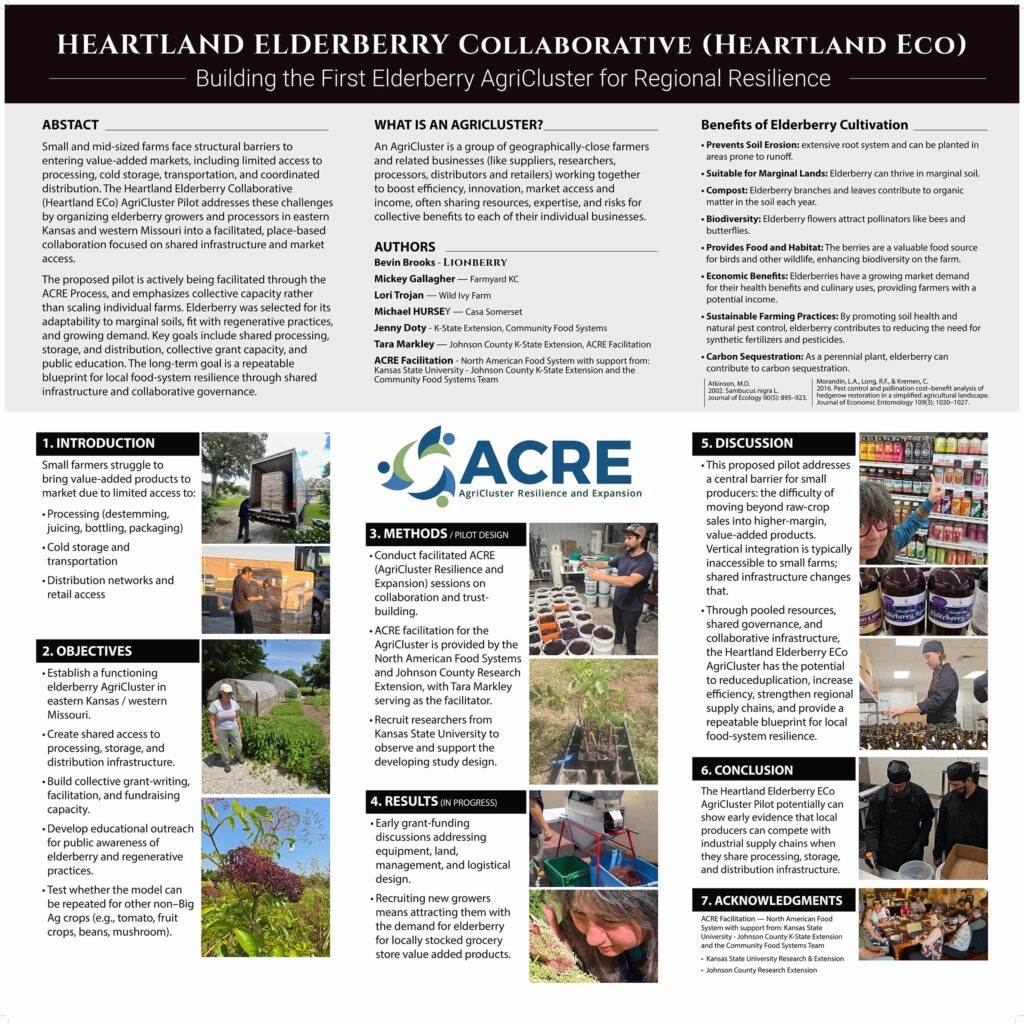About Lionberry
From Farm to Sports Drink
Lionberry was born from the vision of Bevin Brooks, a Kansas City entrepreneur who started with a small elderberry farm and a bold idea: create a refreshing, restorative drink powered by natural farm-grown ingredients. What began as a single-farm venture quickly grew into a thriving business fueled by collaboration, innovation, and a commitment to local food systems.
Growing Through Connection
Bevin credits much of Lionberry’s growth to the Heartland Regional Food Business Center and her business coach, Jenny Doty at K-State Research and Extension. With their guidance, Lionberry gained access to vital resources like the KSU Food Innovation Accelerator, the Kansas Value Added Foods Lab, and statewide directories such as From the Land of Kansas.
These resources provided the foundation for recipe development, food safety, commercial kitchen space, and the all-important network of connections that help small farm and food businesses thrive.
Powered by Local Farmers
Lionberry is more than just a drink—it’s a hub of collaboration among small farms across the Heartland:
Elderberries sourced from two dozen growers in Missouri through Buehler Organics
Lion’s Mane mushrooms from Myers Mushrooms in Wichita, KS
Honey from SHoney Farm in Wamego, KS
Together, these partnerships not only fuel Lionberry’s signature Restorative Refresher, but also strengthen local farm economies. Today, Lionberry is one of the largest customers for these small businesses—helping them grow as Lionberry grows.
Powered by Local Farmers
Lionberry is more than just a drink—it’s a hub of collaboration among small farms across the Heartland:
Elderberries sourced from two dozen growers in Missouri through Buehler Organics
Lion’s Mane mushrooms from Myers Mushrooms in Wichita, KS
Honey from SHoney Farm in Wamego, KS
Together, these partnerships not only fuel Lionberry’s signature Restorative Refresher, but also strengthen local farm economies. Today, Lionberry is one of the largest customers for these small businesses—helping them grow as Lionberry grows.
The Road Ahead
Lionberry is preparing for the next big leap—moving into wholesale distribution with the help of co-packers and continued support from the Heartland Center network. While the journey has had challenges, including the competitive grant process that first sparked the idea, each step has strengthened the business and Bevin’s resolve.
As Bevin puts it:
“Through Heartland Center technical assistance for a grant, a business was born, and a thriving one.”
“Lionberry is more than a drink—it’s a movement, rooted in local farms, built through community partnerships, and crafted to fuel healthy, active lives.”
